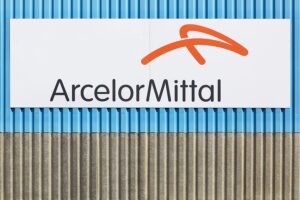EC approves €850m State Aid for French steel decarbonisation drive

The measure will contribute to the achievement of the EU Hydrogen Strategy, the European Green Deal and the Green Deal Industrial Plan targets, while helping to end dependence on Russian fossil fuels and fast forward the green transition in line with the REPowerEU Plan, according to the EC.
France notified the EC of the €850 million measure, which is designed to support ArcelorMittal's project that aims to partially decarbonise its steel production in Dunkirk. It operates three blast furnaces producing liquid hot metal from a mixture of iron ore, pellets, coke, coal and preheated air in the city. It also operates three basic oxygen furnaces which convert the liquid hot metal into liquid steel.
The aid will support the construction of a direct reduction plant (DRP) and two electric arc furnaces (EAF). The combined DRP/EAF installation will substitute two of the three existing blast furnaces and two of the three basic oxygen furnaces.
Natural gas, initially used in the DRP, will gradually be phased out of the steel production processes. Ultimately, the new installation will operate using exclusively renewable or low-carbon hydrogen, biogas and electricity as energy inputs.
Under the scheme, the aid will take the form of a direct grant paid out in four instalments during the construction period of the DRP/EAF installation planned between 2023 and 2026.
The combined DRP/EAF installation is envisioned to start operating in 2026 and it is expected to produce 4 million tonnes of low-carbon liquid steel per year.
Once completed, the project is expected to avoid the release of around 70 million tonnes of carbon dioxide over the 15-year lifetime of the project.
ArcelorMittal has committed to actively share the experience and technical know-how gained through the project with industry and academia, according to the EC.
In approving the measure, the EC found that it facilitates the development of an economic activity, especially the production of green steel.
The aid has an ‘incentive effect', as the beneficiary would not carry out the investments in green steel production without the public support, according to the EC.
The measure is necessary and appropriate to promote the production of green steel. In addition, it is proportionate, as the level of the aid corresponds to the effective financing needs, added the Commission.
The measure has sufficient safeguards to ensure that undue distortions of competition are limited, the EC went on to say.
In particular, if the project turns out to be very successful, generating extra net revenues, the beneficiary will return part of the aid received to France (claw-back mechanism), the organisation continued.
Furthermore, the beneficiary will disseminate the experience and technical know-how gained through the project, noted the European Commission.
Finally, the project is subject to monitoring to verify its progress towards the objectives of CO2 emission savings, phasing out of natural gas and phasing in renewable and low-carbon hydrogen, said the EC.
The aid brings about positive effects that outweigh any potential distortion of competition and trade in the EU, it concluded.
"This €850 million measure allows France to support ArcelorMittal to decarbonise its steel production plant in Dunkirk, using both low-carbon and renewable hydrogen," said Margrethe Vestager, executive vice-president in charge of competition policy. "The measure has a CO2 reduction potential of at least 4.4 million tonnes per year. It demonstrates how our State aid rules enable Member States to help our energy-intensive sectors achieve the EU’s ambitious climate goals. And this while ensuring a level playing field."


























